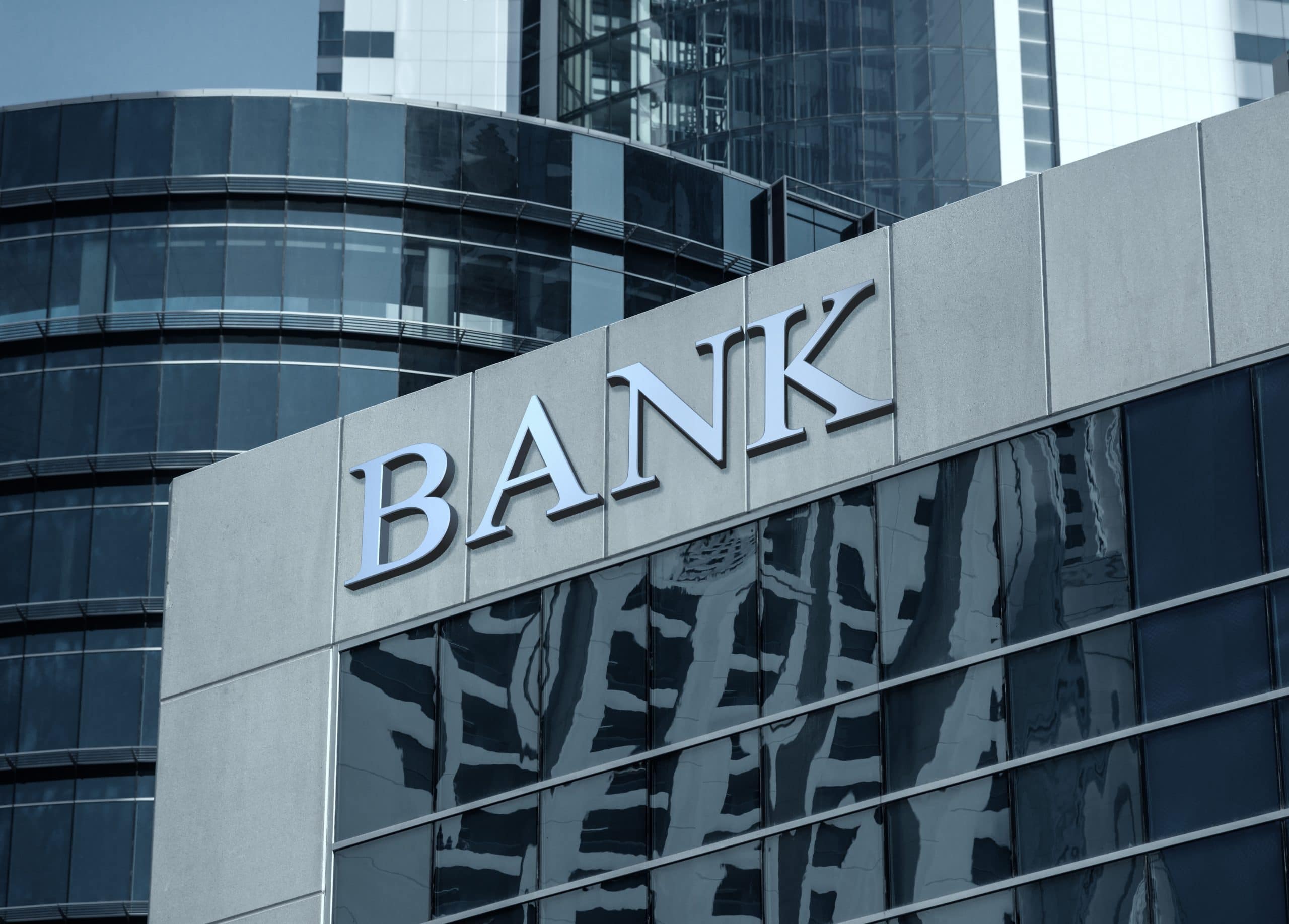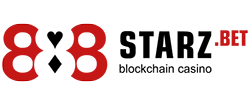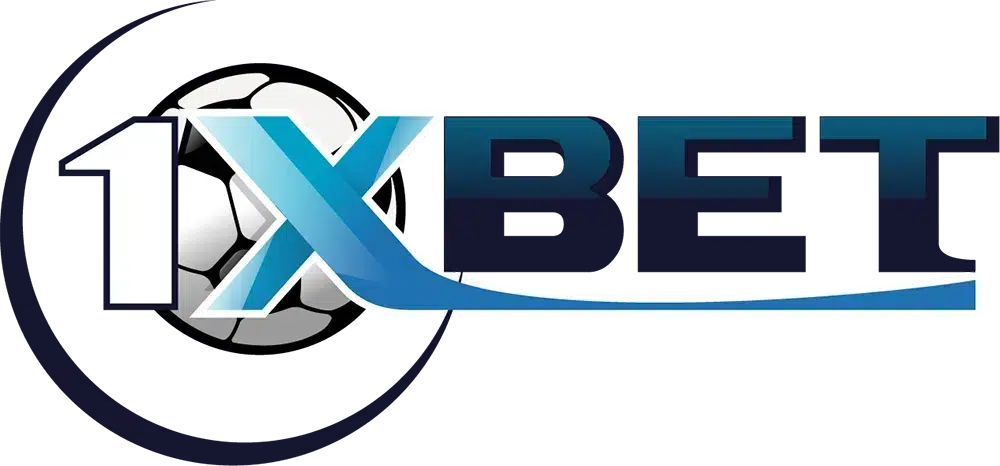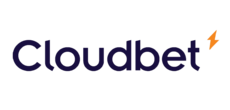Banking jargon: all the key concepts

Contrary to what finance de Demain is used to knowing how to provide you with advice to help you increase your business, this other article presents you rather with banking jargon. These key banking concepts are actually the terms you'll most commonly hear when you visit a bank. The objective of this guide is therefore to help you better understand banking jargon.
Let's go
Account Agreement
It is a contract governing your open-ended credit account. It provides information on the changes that may occur on the account.

Get 200% Bonus after your first deposit. Use this promo code: argent2035
Account history
This is the payment history of an account over a period of time, including the number of times the account was past due or over limit.
Account holder
This expression refers to any person authorized to carry out transactions on behalf of an account. The signature of each account holder must be registered with the bank. The signature authorizes that person to do business on behalf of the account.
See related questions Joint opt-in account holder Overdraft, a joint account Verification Approval and responsibility for a joint account.
Increased interests
This is interest that has been earned but not yet paid.
Variable Rate Mortgages
These are loans granted by the bank for the acquisition of real estate. The initial interest rate is usually lower than conventional fixed rate loans. This rate may change over the life of the loan depending on market conditions.
There is usually a maximum (or ceiling) and a minimum (or floor) defined in the loan agreement. If the interest rates increase, the repayment of the loan also increases. If interest rates drop, repayment of the loan may also. Check out this guide to learn more about Mortgages.
Adverse action
It is the refusal of a creditor to grant credit under the conditions requested, termination of an existing account or unfavorable modification of an existing account.
Adverse Action Notice
The notice required by the Equal Credit Opportunity Act informing an applicant for credit or an existing debtor of the denial of his application for credit or advising of a change in conditions deemed unfavorable to the account holder.
Alteration
It is any change involving erasing or rewriting the date, amount or payee of a check or other negotiable instrument.
Amortization
It is the process of reducing debt through regular installments of principal and interest that will result in the repayment of a loan when due.
Annual percentage rate
It is the cost of credit on an annual basis, expressed as a percentage.
Annual percentage return
A percentage rate reflecting the total amount of interest paid on a deposit account based on the interest rate and compounding frequency for a 365 day year.
CUSTOMER EXPERIENCE
The action of evaluating and fixing the value of a particular property or real estate.
Authorization
The issuance of an authorization by an issuer of credit card, a merchant or other affiliate, to complete a credit card transaction.
Automated Clearing House (ACH)
A computerized facility used by member depository institutions to electronically combine, sort and distribute interbank credits and debits.
ACHs process electronic transfers of government securities and provide customer services, such as direct deposit of customer wages and payments for government benefits (i.e. Social Security, Welfare, and veterans rights) and pre-authorized transfers. See related questions on electronic transactions.
Automatic teller machine (ATM)
It is a machine, activated by a magnetically encoded card or other medium, which can process a variety of banking transactions. These include accepting deposits and loan payments, making withdrawals, and transferring funds between accounts.
Automatic bill payment
A controlless system for paying recurring bills with a single authorization statement to a financial institution. For example, the customer would only need to provide an authorization form/letter/document to pay the cable bill each month. The necessary debits and credits are made through an automated clearing house (ACH).
availability date
Bank policy regarding when funds deposited in an account will be available for withdrawal.
Balance available
The balance of an account less any holds, uncollected funds, and restrictions on the account.
Credit available
It is the difference between the credit limit assigned to a cardholder account and the current account balance.
Balance transfer
The process of transferring an outstanding balance from one credit card to another. This is usually done to get a lower interest rate on the outstanding balance. Transfers are sometimes subject to a balance transfer fee.
depositary bank
A bank custodian is responsible for maintaining the security of client assets held at one of the custodian's premises, a sub-custodian facility or an external custodian.
Bank review
Review of a bank's assets, income and expenses. This operation aims to ensure that the bank is solvent and operates in accordance with banking laws and sound banking principles.

Get 200% Bonus after your first deposit. Use this official Promo code: argent2035
Bank statement
Periodically, the bank provides a statement of a customer's deposit account. This statement shows all deposits made, all checks paid and other debits recorded during the period, as well as the current balance.
banking day
It is a business day on which a bank office is open to the public for almost all of its banking functions.
Bankruptcy
A bankrupt person, business, or corporation does not have enough assets to cover its debts. The debtor seeks relief through legal proceedings to establish a payment schedule or erase debts.
In some cases, the debtor must cede control of all assets to a court-appointed trustee.
Bankruptcy
A legal process by which the affairs of a bankrupt person are assigned to a trustee or receiver for administration under the bankruptcy laws. There are two types of bankruptcy:
- Involuntary bankruptcy – one or more creditors of an insolvent debtor file a petition to have the debtor declared bankrupt.
- Voluntary bankruptcy – the debtor files a petition asserting his inability to fulfill his financial obligations and his desire to be declared bankrupt.
Beneficiary
A person who is entitled to receive the benefits or proceeds of a will, trust, insurance policy, pension plan, annuity or other contract.
Billing Cycle
The time interval between the dates on which regular periodic statements are issued.
Billing date
The month, date and year of generation of a periodic or monthly statement. Calculations have been made for the appropriate finance charge, minimum payment due and new balance.
Billing mistake
It is a charge that appears on a periodic statement associated with an extension of credit (e.g., credit card) that has not been authorized by the cardholder or their agent, is not properly identified, and has not been accepted by the cardholder or his agent.
A billing error can also be caused by a creditor's failure to credit a payment or other credit to an account as well as accounting and clerical errors.
Business day
Any day when the offices of a bank are open to the public to conduct substantially all of the bank's business.
Canceled check
It is a check that a bank has paid, debited the account holder's account, and then endorsed. Once voided, a check is no longer negotiable.
Bank check
It is a check drawn on bank funds, not funds in a depositor's account. However, the depositor paid the cashier's check with funds from his account. The main advantage of a cashier's check is that the payee of the check is assured that the funds are available.
Check out the difference between bank checks, personal checks and certified checks
Cease and Desist Letter
A letter requesting that a company cease the activity mentioned in the letter.
Certificate of deposit
Negotiable instrument issued by a bank in exchange for funds, usually interest-bearing, deposited with the bank. Check out this guide to learn all about certificates of deposit.
Release certificate
A certificate signed by a lender stating that a mortgage has been fully paid and all debts settled. It is also known as lien release.
Certified check
A personal check drawn by a person who is certified (guaranteed) to be good. The front of the check bears the words "certified" or "accepted" and is signed by an official of the bank or savings institution issuing the check. Signature means that the signature of the drawer is genuine, and sufficient funds are deposited and reserved for payment of the check.
Vérifier
Written order directing a financial institution to pay immediately on demand a specified sum of money from the check writer's account to the person named on the check or, if a specific person is not named, to the person bearing the check to the institution for payment.
Check truncation
The conversion of check data into an electronic image after a check is entered into the processing system. Check truncation eliminates the need to return canceled checks to customers.
Current account
It is a demand deposit account subject to the withdrawal of funds by cheque. Check out this guide Bank Current Account – Meaning, Advantages and Disadvantages
ChexSystems
The ChexSystems, Inc. network is comprised of member financial institutions that regularly provide information on mismanaged checking and savings accounts in one central location. ChexSystems shares this information among member institutions to help them assess the risk of opening new accounts. It's a sort of risk center.
ChexSystems only shares information with member institutions; it does not decide on the opening of new accounts. Generally, information remains on ChexSystems for five years.
Indefinite term loan
As a general rule, any loan for which the amount advanced, plus finance charges, is expected to be repaid in full by a specified date. Most home loans and automobiles are permanent contracts.
Closing of a mortgage loan
The consummation of a contractual real estate transaction in which all the appropriate documents are signed and the mortgage proceeds are then disbursed by the lender.
Closing costs
Expenses incurred by sellers and buyers to transfer ownership of real estate. Closing costs may include origination fees, discount points, attorney fees, loan fees, title search and insurance, investigation fees, registration fees and credit report.
Collateral
Assets that are offered to secure a loan or other credit. For example, if you get a home mortgage, the bank's collateral is usually your house. Collateral becomes seized in the event of default.
Recovering agency
A company engaged by a creditor to collect a debt owed to him. Creditors usually hire a collection agency only after they have made efforts to collect the debt themselves.
Fonds of placement collectif
A Mutual Fund is a trust created and administered by a bank or trust company that pools the assets of multiple clients.
Co-signer
A natural person who signs another person's note in support of the primary signer's credit and becomes liable for the obligation.
Credit application
A form to be completed by an applicant for a credit account, giving sufficient details (residence, employment, income and existing debts) to enable the seller to establish the applicant's creditworthiness. Sometimes an application fee is charged to cover loan processing costs.
Credit card issuer
Any financial institution that issues bank cards to those who request them.
Disability credit insurance
It is a type of insurance that makes loan payments if you become ill or injured and cannot work. It is also known as accident insurance and health insurance.
Credit life insurance
A type of life insurance that helps pay off a loan if you die before the loan is fully paid off. This is optional coverage.
Credit limit
The maximum amount of credit available on a credit card or other line of credit.
Credit report
It is a detailed report of an individual's credit history prepared by a credit bureau and used by a lender to determine the credit worthiness of a loan applicant.
Credit reporting agency
An agency that collects individual credit information and sells it for a fee to creditors so they can make a decision on granting loans. Typical customers include banks, mortgage lenders, credit card companies and other finance companies.
Limited time
A time of day established by a bank for receiving deposits. After the cut-off time, deposits are considered received the next business day.
Debit
A debit can be an account entry representing money you owe a lender or money that has been taken from your deposit account.
Debit card
A debit card allows the account holder to access their funds electronically. Debit cards can be used to get cash from ATMs or buy goods or services using point-of-sale systems. The use of a debit card involves the immediate debiting and crediting of consumer accounts.
Debtor
Someone who owes another party money.
Debt-to-income ratio (DTI)
The percentage of a consumer's gross monthly income that is used to pay debts. In general, the higher the ratio, the higher the perceived risk. Higher risk loans are usually priced at a higher interest rate.
Deferred payment
It is a payment postponed to a later date.
Submission of the request
A deposit of funds that can be withdrawn without notice.
Deposit slip
A detailed memorandum of cash and other funds that a customer presents to the bank to credit their account.
Derogatory information
Data received by a creditor indicating that a credit applicant has not settled accounts with other creditors as required.
Direct deposit
Payment deposited electronically into an individual's account at a deposit-taking institution.
Direct dispute
A dispute submitted directly to the provider regarding the accuracy of information contained in your consumer report regarding an account or other relationship you have with the provider.
Disorganized
A written and signed order by which one party (the drawer) instructs another party (the drawee) to pay a specified sum to a third party (the payee), at sight or on a specified date. Typical bank drafts are negotiable instruments and are similar in many ways to checks.
Drawn
The person (or bank) who is supposed to pay a check or draft when presented for payment.
Drawee's bank
The bank on which a check is drawn.
Electronic banking system
A service that allows an account holder to obtain account information and manage certain banking transactions using a personal computer through the financial institution's website on the Internet. This is also known as online bank.
Conversion of electronic checks
Electronic check conversion is a process in which your check is used as the information source for the check number, your account number, and the number that identifies your financial institution.
The information is then used to make a one-time electronic payment from your account – an electronic funds transfer. The check itself is not the means of payment.
Electronic Funds Transfer (EFT)
The transfer of money between accounts through electronic consumer systems – such as ATMs and electronic bill payment – rather than by check or cash. Electronic transfers, checks, drafts and paper instruments do not fall into this category.
Embezzlement
In most states, embezzlement is defined as the theft/stealing of assets (money or property) by someone in a position of trust or responsibility over those assets. Embezzlement usually occurs in the context of employment and business.
Coding
The process used to print or inscribe magnetic characters on cheques, deposits and other financial instruments.
Error resolution
The process required to resolve errors involving electronic transfers to and from deposit accounts.
Escrow
Financial instrument held by a third party on behalf of the other two parties in a transaction. Funds are held by the Escrow Service until it receives appropriate written or oral instructions or until the obligations have been fulfilled. Securities, funds and other assets may be placed in escrow.
Escrow Analysis
The periodic review of escrow accounts by a mortgage company to verify that monthly deposits are sufficient to pay taxes, insurance, and other escrow-related items when due.
Escrow Fund
Funds held in reserve by a mortgage company to pay taxes, insurance and other items related to mortgages when they are due.
Estate account
Account held in the name of a deceased and administered by an executor or administrator of the estate.
Trustee
Undertaking to act as executor, administrator, guardian, custodian or trustee of a family trust, authorized trust or testamentary trust, or receiver or trustee of bankruptcy.
Financial charge
The total cost of credit a customer has to pay on a consumer loan, including interest.
Financial Regulatory Agency
An organization authorized by law to ensure the safe and sound operation of licensed financial institutions.
Fixed rate loan
The interest rate and payment remain the same for the duration of the loan. The consumer makes equal monthly payments of principal and interest until the debt is paid in full. Let's learn more about loans.
Fixed rate mortgage
A mortgage whose payments stay the same for the life of the loan because the interest rate and other terms are fixed and do not change.
Foreign transaction fees
Fees assessed by your bank for performing a transaction at another bank's ATM.
Forged check
It's a check on which the drawer's signature has been forged. See related questions on counterfeiting.
Falsification
The fraudulent signature or alteration of another's name in an instrument such as a deed, mortgage or cheque. The intent of the infringement is to deceive or defraud.
Account frozen
It is an account to which funds cannot be withdrawn until a lien is satisfied and a court order or other legal process makes the account available for withdrawal. For example, a deceased person's account is frozen pending a court order distributing the funds to the new owners.
An account can also be frozen in the event of a dispute regarding the true ownership of an account. The bank will freeze the account to preserve existing funds until legal action can determine the rightful owner.
Searing/Topping
A legal procedure that allows a creditor to withdraw funds from your bank account to settle a debt that you have not paid. If you owe someone or a business money, they can get a court order for your bank to withdraw money from your account to pay off your debt.
Guarantor
A party that agrees to be responsible for paying the debts of another party in the event of default by that party.
Home equity line of credit
A line of credit secured by the equity in a consumer's home. It can be used for home improvements, debt consolidation, and other major purchases. Interest paid on the loan is generally tax deductible. Funds are accessed by writing checks on the line of credit or by obtaining a cash advance.
Home Equity Loan
A home equity loan allows you to tap into the accumulated equity in your home. It's the difference between the amount your house could be sold for and the amount you still owe.
Homeowners often use a home equity loan to renovate their home, pay for a new car, or fund their child's college education. The interest paid is generally tax deductible.
Since the loan is secured by the equity in your home, if you default, the bank can foreclose on your home and take ownership of it.
This type of loan is sometimes called second mortgage or borrow against your house.
Inactive account
This is an account that has little or no activity; neither deposits nor withdrawals have been recorded in the account for a significant period of time.
Indexed certificate of deposit
An indexed CD is a deposit requirement of the issuing bank and is often sold through affiliated and unaffiliated bank branches and brokers. Indexed CDs offer the investor the opportunity to participate in the appreciation, if any, of a particular index, during the term of the CD.
Indexed CDs can have complex payout structures and may not or may not be suitable for all investors. Investors should carefully review the investment risk considerations detailed in relevant offering documents and disclosure statements.
Indexed CDs are not securities and are not registered under securities laws.
Individual account
An account in the name of a person.
Individual retirement account
A retirement savings program for individuals to which tax-deductible annual contributions up to a certain limit can be made. The amount paid is not taxed until it is withdrawn. Withdrawal is not permitted without penalty until the person reaches the set age. Here is how to save stress-free for your retirement
Insufficient funds
When a depositor's current account balance is insufficient to pay a check presented for payment.
Insurance (Hazard)
Insurance to protect the owner and lender against physical damage to a property from sources such as fire, wind or vandalism.
Joint account
An account held by two or more people. Either party may transact separately or together in accordance with the deposit account agreement.
Kite
Write a check for an amount that will overdraw the account but make up the shortfall by depositing another check at another bank. For example, sending a check for the mortgage when your checking account does not have sufficient funds to cover the check, but expecting to receive and deposit your paycheck before the mortgage company presents the check for payment.
Late fees
The fee charged for a late payment on an installment loan, usually expressed as a percentage of the loan or payment balance. Also, a penalty imposed by a card issuer on a cardholder's account for failing to make minimum payments.
Lender
An individual or financial institution that lends money in the expectation that the money will be repaid with interest.
Privilege
Legal action against a property. Once the property is sold, the lien holder is then paid the amount that is owed.
Credit line
A pre-approved loan authorization with a specific borrowing limit based on creditworthiness. A line of credit allows borrowers to obtain a certain number of loans without reapplying each time as long as the total funds borrowed do not exceed the credit limit.
Loan agreement
The written agreement between a borrower and a lender in which the terms and conditions of the loan are set.
Loan fees
Fees charged by a lender to make a loan (in addition to interest charged to the borrower).
Loan modification provision
A contractual agreement in a loan that allows the borrower or lender to permanently change one or more of the terms of the original contract. See related question on mortgage assistance.
Loan proceeds
The net amount of funds that a lending institution disburses under a loan and then owes the borrower.
Maturity
The date on which the principal balance of a loan, bond or other financial instrument becomes due.
The minimum balance
The amount of money that must be deposited into an account to qualify the depositor for special services or to waive service fees.
Minimum payout
The minimum amount that must be paid each month on a loan, line of credit or other debt.
Missing payment
A payment that has been made but not credited to the correct account.
Money Market Deposit Account
A savings account that offers a higher interest rate in exchange for larger than normal deposits. Learn all about money market accounts.
Money market funds
An open-end mutual fund that invests in short-term debt and monetary instruments such as treasury bills and pays money market interest rates. Money market funds generally offer check writing privileges.
Mortgage
A debt instrument used in a real estate transaction where property is the collateral for the loan. A mortgage gives the lender the right to take possession of the property if the borrower defaults on the loan.
Mortgage
Loan granted by a lender to a borrower for the financing of real estate. Mortgages: what to know about these financing methods?
Mortgage creditor
The lender in a mortgage relationship.
Mortgagor
The borrower in a mortgage relationship. The property is used as collateral to make the payment.
Mutual fund
A fund managed by an investment company that collects funds from shareholders and invests them in stocks, bonds, options, commodities or money market securities.
These funds offer investors the advantages of diversification and professional management.
Official Check
A check drawn on a bank and signed by an authorized banking officer. (Also known as a cashier's check.)
Online banking
A service that allows an account holder to obtain account information and manage certain banking transactions through a personal computer through the financial institution's website on the Internet. This is also known as the Internet or electronic banking.
Indefinite loan
A credit agreement (usually a credit card) that allows a customer to borrow against a pre-approved line of credit when purchasing goods and services. The borrower is only charged for the amount actually borrowed plus the interest due. Also called an expense account or revolving credit.
Overdue check
A check issued by a depositor that has not yet been presented for payment or paid by the depositor's bank.
Overdraft
When the amount of money withdrawn from a bank account is greater than the amount actually available in the account, the excess is called overdraft and the account is said to be overdrawn. Check out our guide to bank overdrafts.
Exceeding
Write a check for an amount greater than the amount deposited in the account.
Limit exceeded
An open credit account in which the assigned dollar limit has been exceeded.
Booklet
A book in the form of a general ledger in which all deposits, withdrawals and earnings from a client's savings account are recorded.
Overdue item
Any note or other temporary debt instrument which has not been paid by the due date.
Payday loans
A short-term loan for a small amount that a borrower agrees to repay on their next paycheck or deposit of funds. Payday loans are special types of loans
Payment deadline
The date a loan or installment payment is due. It is set by a financial institution. Any payment received after this date is considered late; fees and penalties may be assessed.
Declaration of payment
A formal statement prepared when a loan repayment is contemplated. It shows the current status of the loan account, all amounts owed and the daily interest rate.
Periodic rate
The interest rate described relative to a specific term. For example the monthly periodic rate the cost of credit per month; the daily periodic rate is the cost of credit per day.
Periodic declaration
The billing summary is produced and sent at specified intervals, usually monthly.
Personal Identification Number (PIN)
Usually a four-character number or word, the PIN is the secret code given to credit or debit card holders to access their account. The code is either randomly assigned by the bank or selected by the customer. It is intended to prevent unauthorized use of the card when accessing a financial service terminal.
Phishing
The activity of defrauding an online account holder of financial information by impersonating a legitimate entity.
Proxy
A written instrument that authorizes one person to act as the agent of another. The power of attorney can be for a precise and specific act, or it can be of a general nature. The terms of the written power of attorney may specify the expiration date. Otherwise, the power of attorney usually expires on the death of the person giving it.
Some institutions require you to use bank power of attorney forms. The bank may call this a durable power of attorney: the principal grants specific rights to the agent.
Pre-authorized payment
A system established by written agreement whereby a financial institution is authorized by the customer to debit the customer's account in order to pay bills or make loan payments.
Prepayment
The payment of a debt before it actually becomes due.
prepayment clause
Clause in a mortgage allowing the mortgagor to repay some or all of the outstanding debt before it becomes due.
Penalty for prepayment
A penalty imposed on a borrower for repaying the loan before its due date. In the case of a mortgage, this applies when there is no prepayment clause in the mortgage note to offset the penalty.
Previous balance
The cardholder's account balance as of the previous billing statement.
Principal balance
The outstanding balance of a loan, excluding interest and fees.
Release of privilege
Freeing real estate from a mortgage. See the related question on release of privilege.
Renewal
A form of extending an outstanding loan in which the borrower's outstanding loan balance is rolled over (rolled over) to a new loan at the start of the next funding period.
Residual interest
Interest that continues to accrue on your credit card balance from the statement cycle date until the bank receives your payment.
For example, if your statement cycle date was January 10 and the bank received your payment on January 20, there were ten days for which interest accrued. This amount will appear on your next statement.
Return object
A negotiable instrument—primarily a check—that has been sent to a bank for collection and payment and is returned unpaid by the issuing bank.
Reverse Mortgage
A reverse mortgage is a special home loan product that allows a homeowner age 62 or older to access the equity built up in their home. The house itself will be the source of the reimbursement.
The loan is taken out based on the value of the collateral (house) and the life expectancy of the borrower. The loan must be repaid when you die, sell your home or no longer live there as your principal residence. See related questions on reverse mortgages.
Revolving credit
A credit agreement (usually a credit card) that allows a customer to borrow against a pre-approved line of credit when purchasing goods and services. The borrower is only charged for the amount actually borrowed plus the interest due. Also called a charge account or open credit.
Right of set-off
It is the legal right of banks to seize funds that a guarantor or debtor may have on deposit to cover a defaulted loan.
Right of withdrawal
It is the Right to terminate, within three working days, a contract that uses a person's home as collateral, except in the case of a first mortgage loan. There are no fees for the borrower, who receives a full refund of all fees paid. Safe
Mortgage Satisfaction
A document issued by a mortgagee (the lender) when a mortgage is paid in full.
Service charge
Fees assessed by a deposit-taking institution for processing transactions and maintaining accounts.
signature card
A card signed by every depositor and customer of a bank that can be used as a means of identification. The signature card represents a contract between the bank and the depositor.
Student loan
Loans made, insured or guaranteed under any program authorized by the Higher Education Act. The loan funds are used by the borrower for educational purposes.
Replacement control
A replacement check is a hard copy of the front and back of the original check. A replacement check is slightly larger than a standard personal check so that it can hold a photo of your original check.
It is legally the same as the original check if it accurately represents the information on the original check and includes the following statement. The substitute check must also have been processed by a bank.
Terms
The period and interest rate agreed between the creditor and the debtor to repay a loan.
Time Certificate of Deposit
A term deposit materialized by a negotiable or non-negotiable instrument specifying an amount and a maturity.
A term deposit
A term deposit (also known as time deposit) is a deposit of money in a bank that cannot be withdrawn for a certain "term" or period of time.
When the mandate is completed, it can be withdrawn or maintained for another mandate. The longer the duration, the better the return on money. As a general rule, early withdrawals carry significant penalties.
Trust account
General term that covers all types of accounts in a fiduciary service, such as estates, guardianships and agencies.
trust administrator
A person or institution that manages trust accounts.
Wear
Charging an illegally high interest rate on a loan.
Wear rate
The maximum interest rate lenders can charge borrowers. The wear rate is usually set by state law.
Floating rate
Any interest rate or dividend that changes periodically.
Leave us a comment






















Leave comments